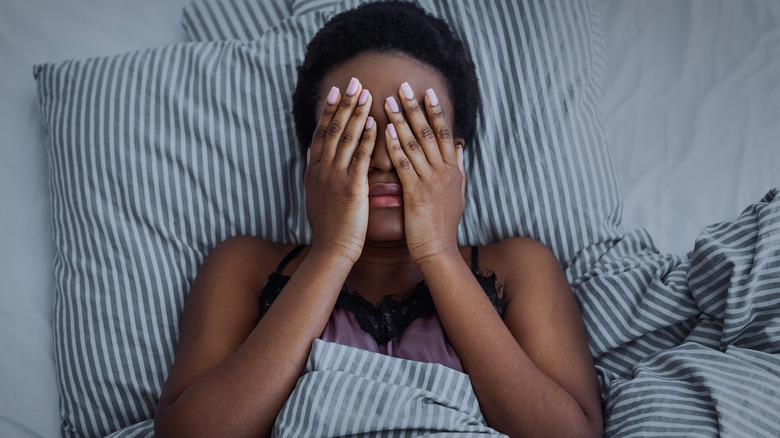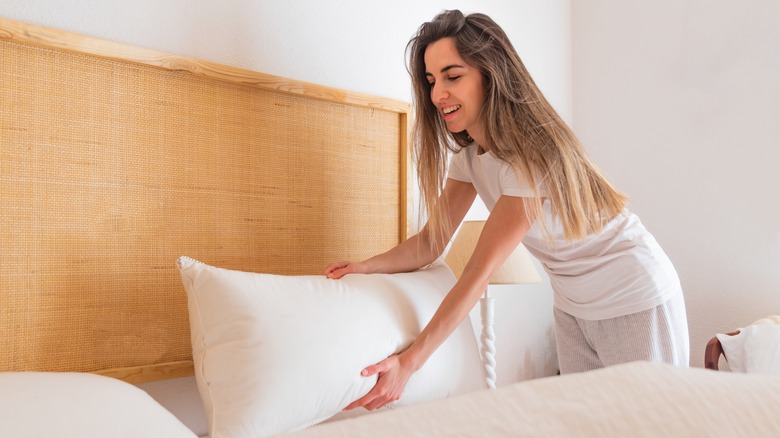Allergies Can Make Sleep Apnea Worse - Here's What To Do About It
Allergies are pesky, aren't they? You could be fine one day, and the next day you're coughing, sneezing, and congested. Some people only get allergies during certain times of the year, and other people can experience them year-round. An allergic reaction occurs when your immune system mistakes a substance as a threat, so it sends antibodies to fight the substance. It also releases histamine, which can make you feel tired. You could also experience brain fog because less oxygen reaches your brain, limiting your ability to think clearly. People who experience allergies might breathe through their mouths to get more air. Your tonsils and adenoids can also swell up, which could make sleep apnea worse (via Haden Allergy).
According to Amerisleep, sleep apnea is a condition where you stop breathing for 10 seconds or longer during sleep. This will occur a few times through the night. People with severe sleep apnea could have 30 episodes per hour. You begin breathing again when you wake up, and this cycle of frequent waking causes serious disturbances in your ability to get restorative sleep. Obstructive sleep apnea (OSA) is the most common type of sleep apnea, and refers to something constricting the flow of air to the lungs.
Experiencing seasonal allergies can create more frequent and longer sleep apneas according to Sleep Better Georgia. Therefore, you'll need to address your allergies so this doesn't occur.
Treating allergies if you have sleep apnea
Although allergies don't necessarily cause sleep apnea, the two are related, according to ResMed. Allergy-related nasal congestion can dry out your mouth and nose, or your breathing can become blocked, particularly at night — and though allergy medication might be somewhat helpful, a 2011 study in European Archives of Oto-rhino-laryngology notes that nasal steroids alone won't be sufficient for most people with OSA. Therefore, it's vital to know what other strategies might need to come into play to help you get the best possible sleep.
For instance, if you use a nasal continuous positive airway pressure (CPAP) device to help with your sleep apnea, it could be less effective if your nasal passages are clogged. Therefore, it might be best to opt for a mask that covers your nose and mouth if you also have seasonal allergies.
You can also manage your allergies by making some adjustments to your bedtime routine. According to Sleep Better Georgia, purchase a hypoallergenic pillow that resists allergens such as dust mites. You should also change and launder your pillowcases often.
If your pets often go outside, they can easily bring in allergens through their fur and paws. Wipe down their fur and feet so they don't track these allergens on your bed or pillow. A humidifier and air purifier can give you added comfort for sleeping. The humidifier helps keep your sinuses from drying out, and the air purifier can filter out some of the pollen from your bedroom. It's also a good idea to shower after spending time outside and before going to bed so allergens that may have attached to your body don't transfer to your pillow. You can also reduce the allergens in your home by vacuuming and dusting frequently.


